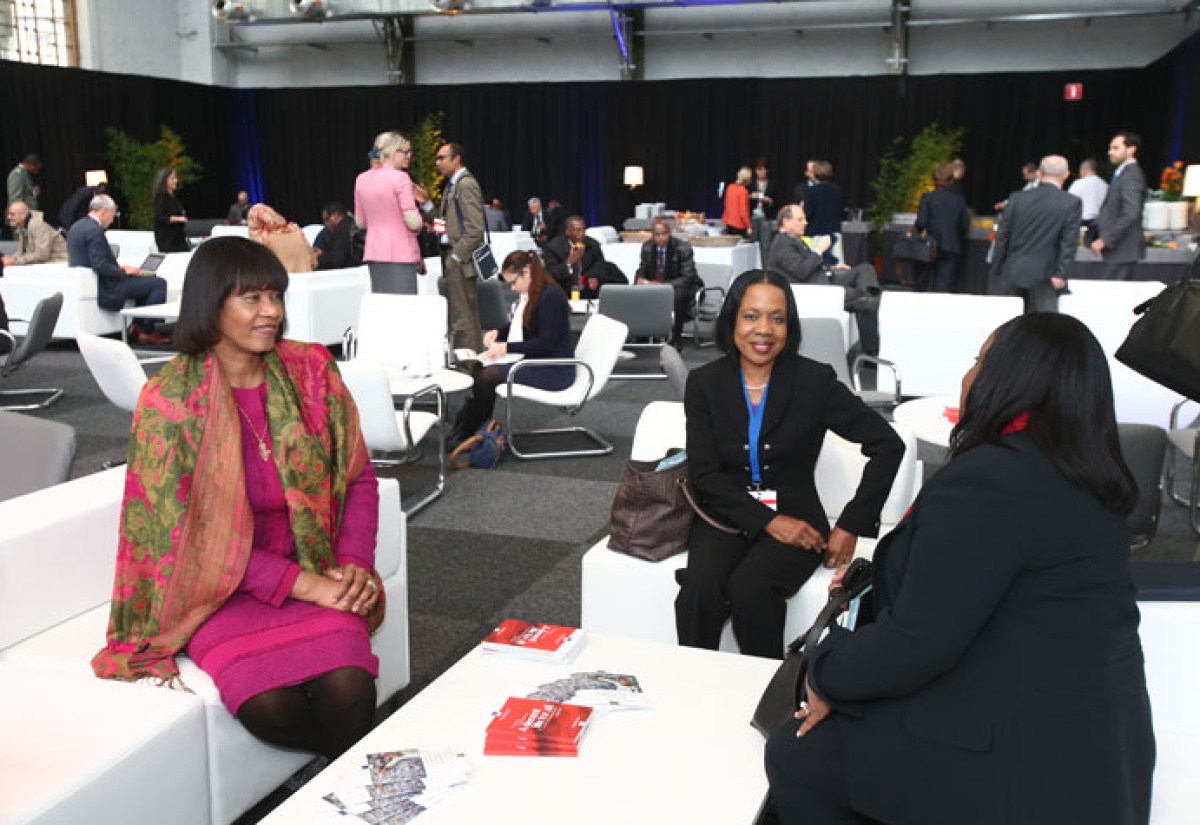PM Says Lack of Funding Keeping Women Out of Politics
By: , November 26, 2013The Key Point:
The Facts
- Mrs. Simpson Miller was participating in a panel discussion on: ‘Women’s empowerment post-2015’.
- The panellists examined how the post 2015 framework ensure progress towards gender equality.
The Full Story
Prime Minister, the Most Hon. Portia Simpson Miller, has cited a lack of adequate funding as part of the challenge keeping more women from participating in representational politics in Jamaica.
She noted that while women head important institutions, such as the Supreme Court, and are dominant in fields such as health and education, they still lag behind in numbers in the Parliament.
“I think part of the challenge for more women not getting involved in politics, is lack of financing. The men will have their friends that will do fundraising for elections and for them to carry their (political) organisations, while the women will not have those with the money who will be able to assist,” she said.
Mrs. Simpson Miller was participating in a panel discussion on: ‘Women’s empowerment post-2015’, during day one of the European Development Days forum in Brussels, Belgium, on November 26.
The panellists examined how the post 2015 framework ensure progress towards gender equality and ask; ‘Do we have to choose between stand alone goals and mainstreaming?’
The Prime Minister said the fact that she rose to the rank of Prime Minister, means that women should not put barriers on themselves and should move forward. She emphasized that it is critical for women to be part of the political process globally, noting that as caregivers and nurturers, they tend to bring a different point of view to decision making.
Mrs. Simpson Miller said women can influence policy with their votes and urged them to advocate more for policies that are beneficial to them.
In response to the question of why more women are not appointed as Head of the Central Bank or as Minister of Finance, she pointed out that the women now in her Cabinet are young and are being afforded the opportunity to understand issues of government and governance before they can occupy such senior positions.
In the meantime, Minister of Gender and Development in Liberia, Julia Duncan-Cassell, pointed out that the issue of gender equity is not “one size fits all,” noting that each country has its own peculiarities. She informed that while her country has taken major steps towards gender equity, more needs to be done.
She informed that of 103 political representatives in the House, only 11 are women. However, six of the 23 Cabinet Ministers are women. “We are proud of that, but we still need more,” she said.
The Minister noted too, that women are challenged financially when it comes to the political process. She pointed out that in politics in her country, “you have to spend money to feed the people, to take care of them and the women don’t have that.”
She is advocating for more women in decision-making positions and other professional fields in her country.
Moderated by Al Jazeera journalist, Ghida Fakhry Khane, the session also saw presentations from Deputy Executive Director, United Nations Entity for Gender Equality and the Empowerment of Women, John Hendra; Managing Director for Global and Multilateral Issues, European External Action Service, Mara Marinaki; and President, European NGO Confederation for Relief and Development, Joanna Maycock.


